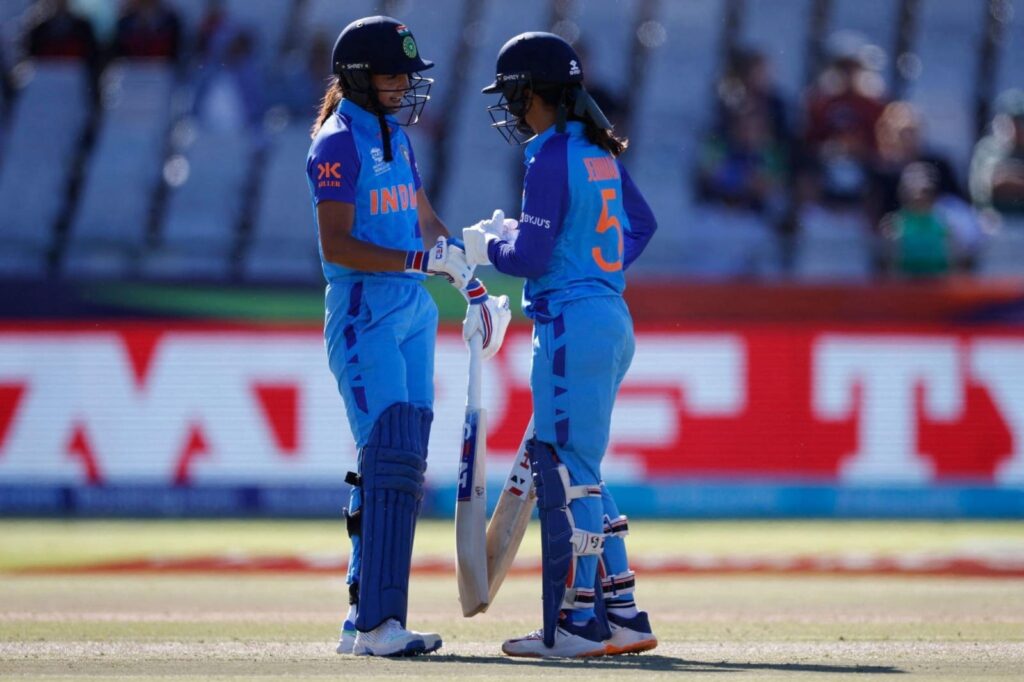
Boria Majumdar
It is the almost obsessive zeal to win that separates the best from the mortals. Every player who plays international sport at the highest level has a special set of skills. What separates the good from the greatest is the ability to execute these skills under pressure.
Be it Manchester United coming back from the brink of defeat against Bayern Munich in that fabled Champions League final in 1999, or Novak Djokovic winning the gruelling five-set epic against Stefanos Tsitsipas at Roland Garros in May 2022, what has forever been celebrated in the annals of modern sport is the winning mentality. Recall too Carlo Ancelotti’s Real Madrid transforming a near-certain defeat (3-5 on aggregate in the 90th minute) into the most improbable of triumphs against mighty Manchester City in the space of five minutes in last year’s Champions League semi-final.
The almost obsessive zeal to win separates the best from the mortals. The 1999 World Cup semi-final between Australia and South Africa was decided not by skill, but by this absolute determination not to lose. Damien Fleming against Lance Klusener, having conceded back-to-back boundaries, was a no contest. Yet, Australia managed to sneak a tie from the jaws of defeat, before ripping Pakistan to shreds in the Lord’s final. Each of these achievements is now part of sporting folklore.
And this is where Harmanpreet Kaur’s team is lacking. They certainly have the ability to push Australia. They have done so time and again. When Harmanpreet and Jemima Rodrigues were cruising, they had Australia on the mat. And that’s when disaster struck. First Jemima and then Harmanpreet. Once the two were dismissed, Australia believed they could eke out an improbable victory. And India, harsh as it may sound, did not have the self-belief to win from a winning position. The ability to soak up pressure and excel in trying circumstances is something Australia has shown time and again and that, more than anything, defines the legacy of Meg Lanning and her team. They stay competitive and hungry till the very last ball, and that’s where close matches are won.
Three different pressure moments sum up the semi-final. The first was Jemima’s dismissal completely against the run of play. On another day, she could have left the ball. Or even scooped it over the keepers head. But not so last night. The risk quotient was high and when the match was in control thanks to some fantastic batting by her and Harmanpreet, the shot was best avoided. The second was of course the Harmanpreet dismissal. Unfortunate or amateurish, it was a defining moment. You need to credit Alyssa Healy for her presence of mind. She was on the money even when Harmanpreet was in complete control of the run. In fact, Healy was ready.

The moment she sensed a chance, she seized her opportunity. She made her luck and that’s when the match was won for Australia. You make your own luck in sport and don’t just rue it. Lanning’s reaction to the effort said it all. Under pressure, Australia had shown extraordinary poise. The Healy run-out of Harmanpreet dented the Indian run chase and was a defining moment in the contest.
Finally, there was Ellyse Perry. India was still in the hunt and a boundary then could have made all the difference. Most watching felt it was a boundary. Perry did not. She sprinted close to 30 yards and then dived full length. She also knew the boundary rope was too close for comfort and just as she was flinging herself, managed to push the ball back with one hand. It was spectacular athleticism. A split-second effort that made the difference between a semi-final loss and a World Cup final.
Let’s not forget Darcie Brown either. We say Shafali Verma is 19 and will surely improve. She absolutely will. But may we also say that Shafali has played at the highest level for a good four years now and knows what international sport is all about. We haven’t seen the improvement we wanted to. Brown too is 19, and bowled the defining spell of the match with two wickets for 18 in four overs. That she did not panic speaks volumes of her mental strength and her spell was yet another decisive passage in the game. Eventually, it was one solitary hit that separated the winner from the second best.
Each of the efforts mentioned above was produced under pressure. And against a team that looked to be in control for a major part of their batting effort.

It is this inability to deliver under pressure that is pushing this Indian side back. Not to bowl a full toss or a long hop when you are aiming to bowl a yorker or a wide delivery outside the off stump. India’s last over with the ball was proof, with 18 conceded and a gettable target of 160 swelling to 172. Misjudging a straightforward catch when a missed opportunity may result in the match going the opponent’s way.
Shafali fluffed the Beth Mooney chance and paddled it to the boundary. Four extra runs conceded when the eventual difference was just five. And in Lanning, reprieved twice by Richa Ghosh behind the stumps, Australia has a captain who just hates to lose. Her bowling changes at the death all came off, evidence that the winning mentality is now a winning habit for Australia. For India, that mental hurdle hasn’t been crossed. The fielding remains a nightmare and unless we stop attributing setbacks to bad luck, things won’t change in the near future.




